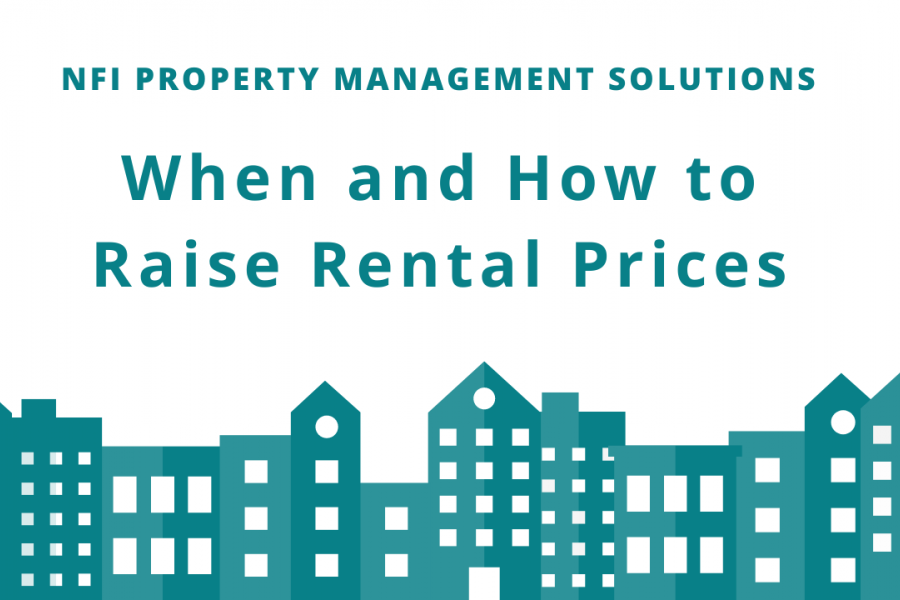
As a landlord, you might find yourself in a situation with a quality long-term tenant. If they have been consistently paying their rent on time and adhering to the property rules and regulations, you might think they are the perfect tenant!
However, there is the only issue at hand. You feel they are paying below the market value of the property and you want to increase the rent come lease renewal time.
In this article, the team from NFI Property Management Solutions has put together a comprehensive article to discuss raising the rent. With this advice, you can easily and legally raise your rent while maintaining all the benefits of a long-term tenant.
Compliance with Rental laws
Making sure you comply with all rental laws is the first step in the process. Are you in compliance with the local property laws?
You need to consider state laws and county by-laws. These rules may prohibit rent increases in some neighborhoods, making it illegal for you to raise your tenant’s rent. Furthermore, some local laws might place a ceiling rate preventing landlords from raising rent above a specific percentage.

As a landlord, you have first-hand experience of the role that property laws play in the industry. There are few industries that are as regulated as property. It is in your best interest to understand what your options are, and explore the rental laws in your area.
Rent Increase: A Lease Document Clause
If the laws in your area do now restrict you from raising the rent, it is possible to raise the rental asking price every year. Most landlords find that the issue arises with the approach that they use. If the rental reviews are unexpected and tenants can feel blindsided.
To empower you as the landlord while still keeping the tenant informed, it is wise to incorporate the possibility of a rent increase when creating the lease document.
This rental review clause should contain the current rent being paid and the percentage of upward rental review. The clause should also contain the minimum notice days that the tenant should give should they wish to terminate the lease.
While you can use a downloadable lease template from the internet, they don’t incorporate your unique elements as a property owner. We recommend that you rely on a local property company with the experience and expertise to guide you appropriately.

Determine the Increase Rate or Percentage
Before raising the rent, we recommend that you perform a market analysis and look for comparables in your neighborhood. These comparable units should be similar to yours in terms of amenities and fittings. Ideally, they should have a similar plinth area, the same quality of finish, amenities, and the same number of bedrooms and bathrooms.
Should you find out that a similar unit in the area is being leased at $1500, why would you increase your asking price to $1,800? You must also remember that as much as your tenant may have enjoyed staying in your rental, they are rational spenders. Should they find a similar unit at the same or lower rental price, they might consider moving.
Another element that you should consider are vacancy rates. Are property owners with similar units in the neighborhood having difficulty securing a tenant? Is the demand for rentals fluctuating or constant? These questions will guide you on how to handle the market.
Upgrades and Renovations
As mentioned above, when raising the rent or pricing your property, you need justification. While the demand for rental units may be constant, you might have decided to make several renovations and upgrades to your rental units. With better quality amenities and fittings on the property, you can increase your rent above that of similar comparables in the market.

If you have had a quality tenant on the premises, give them the first priority. The better amenities will serve as an incentive for them to continue leasing the premises albeit at a higher rental price.
It could also be possible that the tenant might request certain upgrades and renovations to the property. These upgrades will differ depending on the premises and also on the demographic. The needs of an individual will differ from that of a couple and from that of a bigger household.
Giving Notice
We recommend that you give your tenants a notice of between 45 to 60 days before raising rental prices or performing renovations. The best case is that they would consider the upgrades and renovations done and appreciate the value.
Should they choose to move out, the 45-60 days will give you enough time to market and secure a new tenant.
Conclusion
Before you make the decision to review your rental prices make sure you read all applicable laws, incorporate them into your lease document, and perform a market analysis to determine how much to raise the rent.
Investing and managing the issues in property can be quite a challenge. Should you find yourself overwhelmed, you can rely on a reputable and reliable property management company who can take on the management of your property. For property owners in Pensacola, the ideal choice is NFI Property Management Solutions.
We are the leading service provider in the area offering management services to property owners. Our clients rely on us to offer them the latest industry solutions to their property management needs. NFI Property Management Solutions is a member of the National Association of Residential Property Managers and the Pensacola Association of Realtors.
You can rely on the #1 property company in the area to advise you on how to deal with all your property issues.